Protecting the interests of children in family disputes: advice from advocates and Supreme Court practice
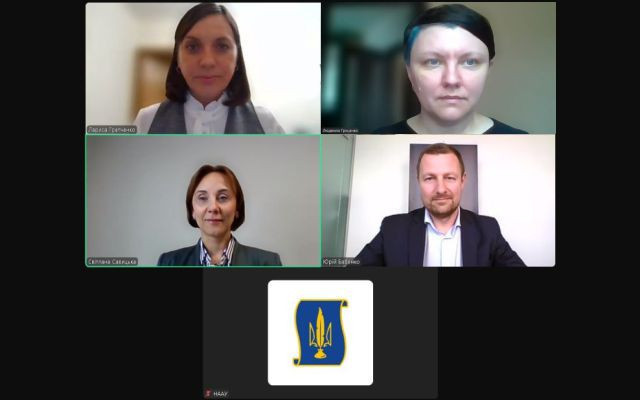
How to determine and prove the best interests of the child in a family dispute is a question that always poses a challenge for the court, the advocate, and the parents. Here, the law, the practice of the Supreme Court, and the professional ethics of the advocate must work together.
The Ukrainian National Bar Association held a webinar entitled «Ensuring the best interests of the child in family disputes: the scope of influence of the advocate». The event was initiated by the UNBA Committee on Family Law. The ethical aspect of professional legal assistance in cases concerning the right of the child to a family was considered by Svitlana Savitska, the deputy chairman of the Committee.
The advocate emphasized that in cases involving children, the law and the ethics of an advocate are inextricably linked. «The law is a framework that indicates what is possible and what is not; ethics is what transforms the letter of the law into justice», - she explained. After all, an advocate does not simply resolve a legal case; he or she builds a child's future.
To understand whether a decision made regarding a child is correct and appropriate, S. Savitska advises answering the following questions: What consequences will this decision have for the child in a year, five or ten years? Is it important for the child or convenient for adults? Is it consistent with universal human values or is it being made solely for the sake of ambition? Can you be proud of it and defend it in an open discussion?
The advocate emphasized that any decision can be justified externally as being in the best interests of the child, but an advocate always knows whether it is fair and justified for the child.
The topic «The best interests of the child: the sphere of influence of the advocate. Current conclusions of the Supreme Court on the protection of children’s interests: response to today’s challenges» was presented by Yuriy Babenko, the deputy chairman of the Committee. The advocate explained how the court should proceed in a case where the conclusion of the guardianship authority is mandatory but cannot be obtained, whether the court may continue proceedings in a case that is subject to suspension if such suspension is detrimental to the interests of the child, and whether there are prospects for judicial practice on establishing joint parental custody over a child.
The legal standards of evidence in family disputes concerning children were outlined by Larisa Gretchenko, the chairman of the Committee. She emphasized that the adversarial principle ensures a thorough investigation of the circumstances and places the burden of proof on the parties. At the same time, the court is not obliged to consider a circumstance proven solely on the basis of a party's assertions — each circumstance must be proven to a higher standard of proof. This position was confirmed by the Grand Chamber of the Supreme Court in case No. 129/1033/13 (para. 81 of the decision of March 18, 2020).
A separate part of the speech provides examples of how a judge's internal conviction is formed on the basis of all the circumstances taken together and does not allow for formalism regarding the fate of the child. The issue of ensuring the interests of the child is based on the understanding that divorce is always a heavy psychological burden for children, and adults, preoccupied with their own problems, forget about the radical changes in the child's life: a new environment and place of residence, the inability to communicate with both parents at the same time, etc. When deciding on the child's place of residence, courts must take into account objective and available evidence in the case, including an assessment of the living conditions, the child's psychological and emotional state, the parents' behavior towards the child, and the conclusion of the guardianship and custody authority. A child whose parents have been unable to maintain a relationship or reach an agreement should not be deprived of a happy and peaceful childhood. This position was expressed by the Civil Cassation Court of the Supreme Court in case No. 127/20368/21 (decision of 14 December 2023).
Practical recommendations on how to act when assessing and determining the best interests of the child were provided by Lyudmila Hrytsenko, an expert on children's representation at the Interagency Coordination Council on Juvenile Justice.
Using the example of a case of adoption and subsequent deprivation of parental rights, she demonstrated the development of the relationship between the adoptive parents and the child, the involvement of the guardianship and custody authority, and the psychologist at all stages of the proceedings. The expert drew attention to the need to balance the interests of the child and the interests of the parents, prioritizing the former and the derivative nature of the latter.
Analyzing the administrative and judicial procedures, L. Hrytsenko presented recommendations developed jointly with psychologist and court expert Hanna Kozlova for a step-by-step analysis and questions that are helpful in identifying and assessing the best interests of the child: from the moment the couple decides to adopt a child to the decision to terminate the adoption.
Emphasizing the importance of understanding the purpose of child adoption, the speaker outlined thematic questions aimed at exploring the motivation of adoptive parents, their expectations from the adoption process, and regarding the child itself.
According to L. Hrytsenko, it is important for the advocate to clarify the circumstances how the adaptation process of the child and parents (family) went, identifying the presence or absence of support resources, the involvement of child services, guardianship and custody authorities, and other entities involved in providing assistance in the adaptation process, adequate support, and solving problems that arise in raising the child.
It is also necessary to assess the consequences for the adopted child and family and identify the risks of creating dangerous conditions if the child remains in this family. At the end of the report, the expert demonstrated the elements to be taken into account when determining the best interests of the child and constructed a hierarchy of these elements based on their priority and interconnection.
Popular news
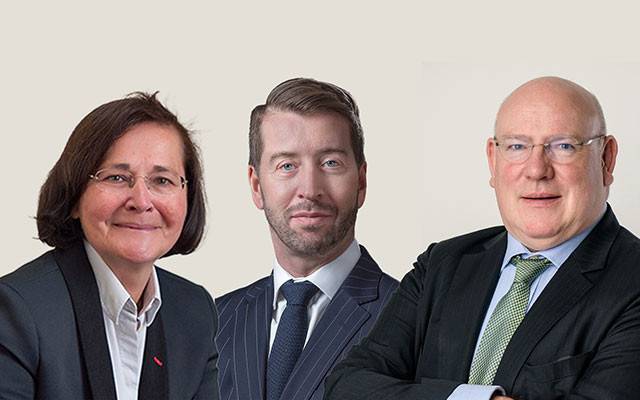
Legislation
UNBA initiatives to implement the Roadmap were supported by international experts
International experts who participated in the inaugural meeting of the Working Group on the implementation of the Roadmap on the rule of law in advocacy and agreed to join it expressed their support for the initiative of the Ukrainian National Bar Association.

Legislation
How will the group responsible for implementing the Roadmap for advocacy operate?
The working group on the implementation of the Roadmap on the rule of law in the area of advocacy will operate at several levels: plenary meetings as a platform for adopting framework decisions, a coordination bureau for compiling documents and calendar control, and thematic subgroups for preparing norms and their justification. International experts will verify the results against European standards and «red lines».
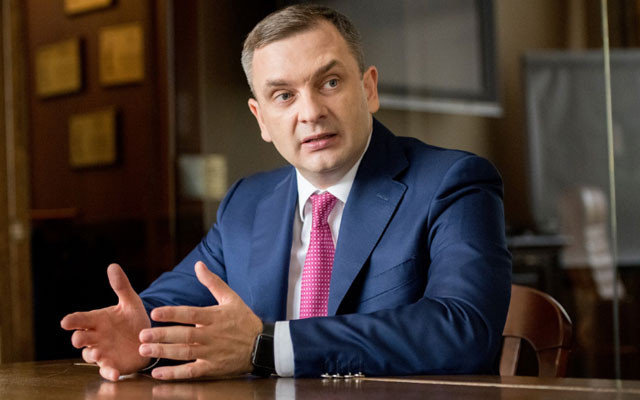
Legislation
Advocacy is a responsible entity, not a critic of reform — V. Gvozdiy
The Roadmap on the Rule of Law is not a basis for restructuring the model of advocacy, but a framework for verifying and improving the already European-oriented system. At the same time, part of the work has already been done, so further progress should be made in the form of coordinated and practical decisions.
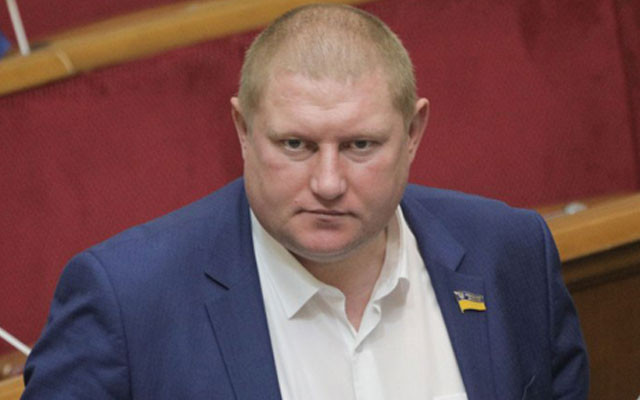
Legislation
Vatras on the implementation of the Roadmap: only advocates should create their own destiny
Work on implementing the Roadmap in relation to advocacy should be based on the participation of the professional community itself, and key tasks should be structured in such a way as to avoid mixing processes that differ in content and procedure.
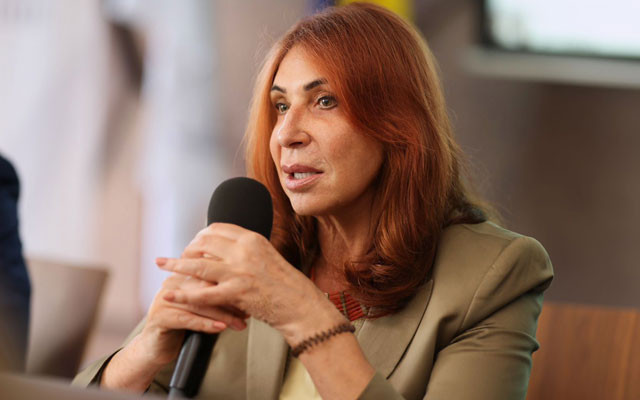
Legislation
Lidiya Izovitova outlined the approach to implementing the Roadmap for advocacy
The general approach to working on the implementation of the Roadmap on the Rule of Law in terms of reforming advocacy should not be based on «slogans», but rather on gathering facts, comparing them with standards, consulting with the professional community, and formulating norms for which participants are prepared to take responsibility.
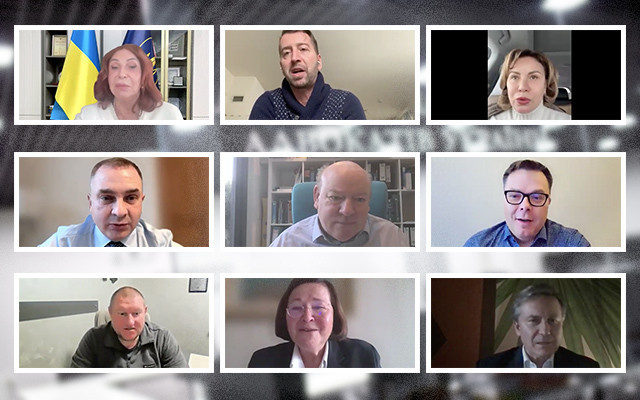
Legislation
Roadmap and advocacy: working group holds first meeting
On January 2, the first organizational meeting of the Working Group on the implementation of the Roadmap on the rule of law in the area of advocacy reform took place. The event was devoted to agreeing on the framework for further work and exchanging the initial positions of the participants.
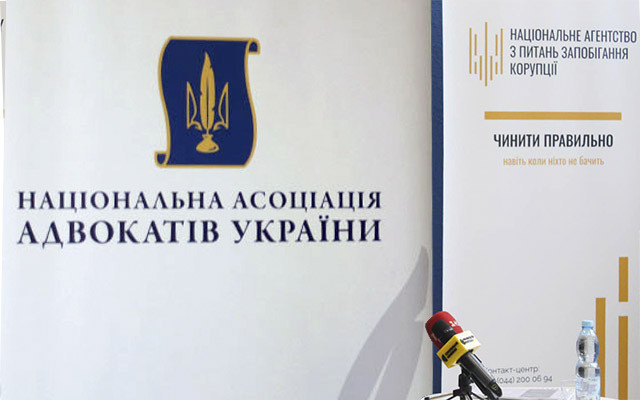
Self-government
BCU: NACP initiatives regarding the Bar are unconstitutional interference
The Bar Council of Ukraine has condemned the initiatives to reform the Bar proposed by the National Agency on Corruption Prevention as direct, gross and systematic interference by the executive branch in the activities of an independent constitutional institution.

Self-government
UNBA program for implementation of the Roadmap on the rule of law published
In order to ensure the implementation of measures set out in the Roadmap on the Rule of Law, the Bar Council of Ukraine approved a program for its implementation in relation to the reform of advocacy.
Publications

Victoria Yakusha, Law and Business The anti-corruption vertical cannot «take care» of the Bar as an institution, - acting head of the HQDCB

Censor.net Protecting advocates – protecting justice: addressing concerns about the new law

Ihor Kolesnykov A BRIEF SUMMARY REGARDING THE APPLICATION OF THE ORDER ON EXTENDED CONFISCATION IN LATVIA REGARDING FINANCIAL ASSETS OF…

Valentyn Gvozdiy WORKING IN A WAR ZONE

Lydia Izovitova Formula of perfection

Sergiy Vylkov Our judicial system is so built that courts do not trust advocates

Iryna Vasylyk Advocacy in the proclamation of Independence of Ukraine

Oleksandr DULSKY When we cross the border of the Supreme Anti-Corruption Court, we get into another department of the National Anti-Corruption…
